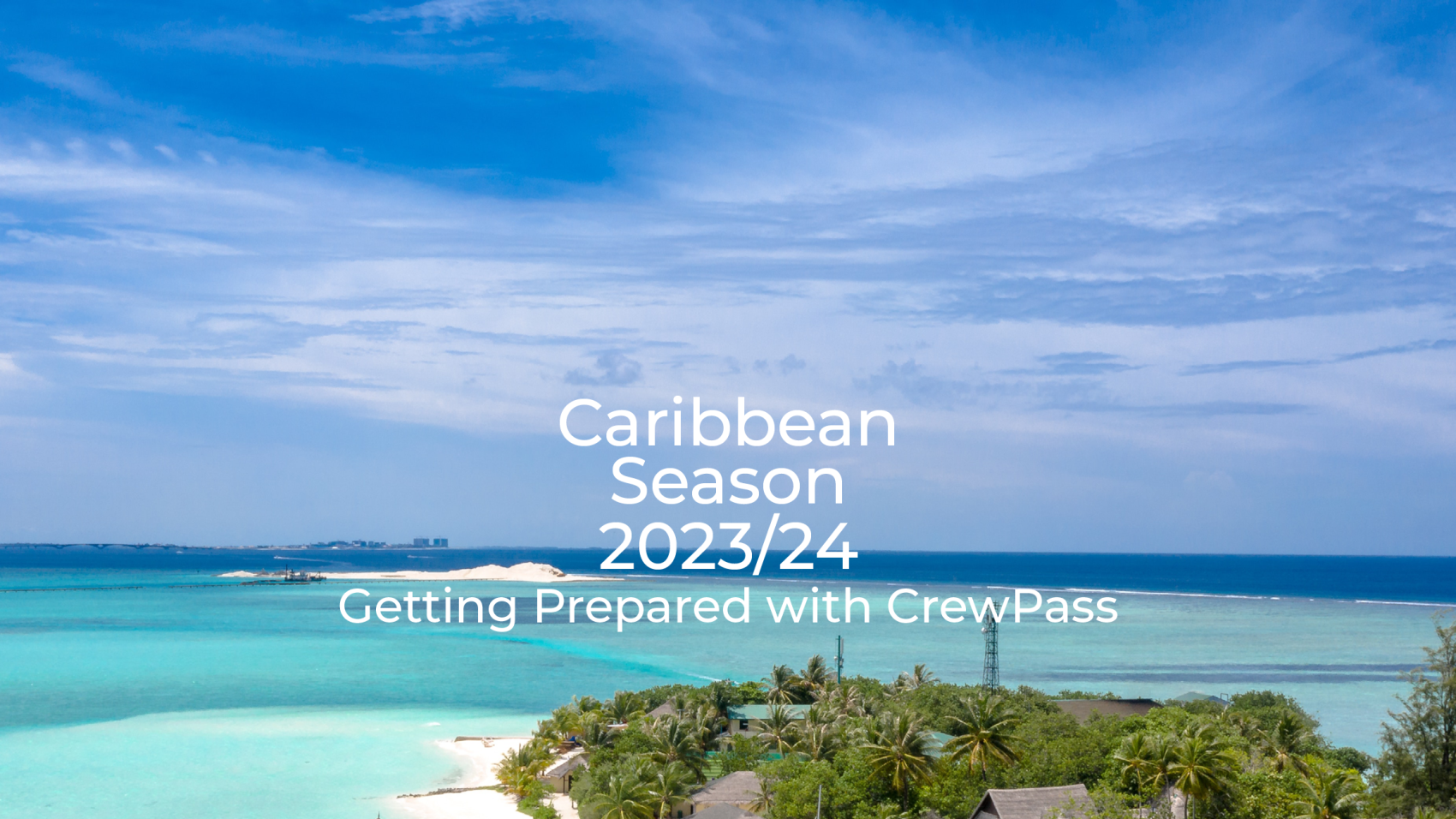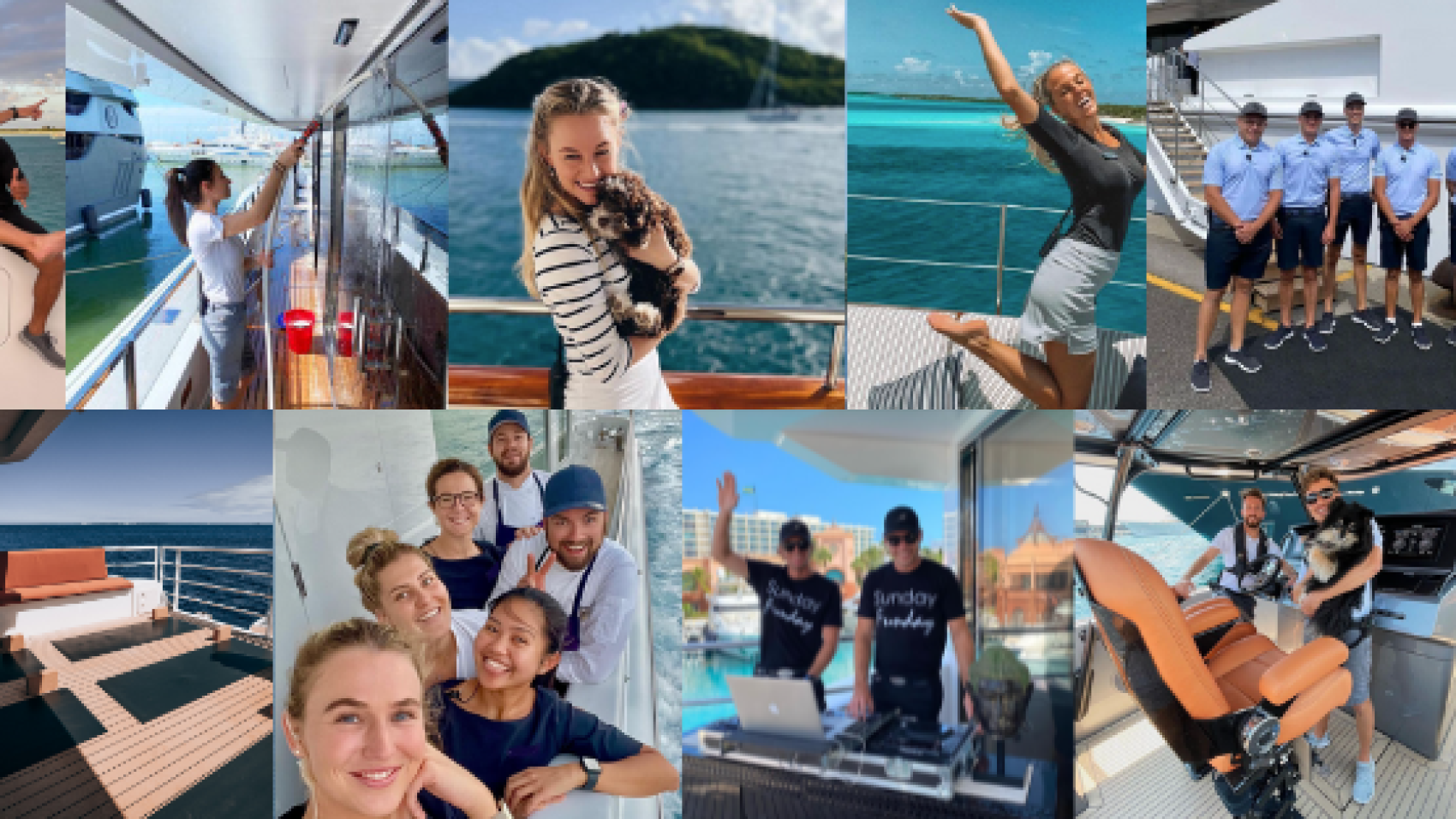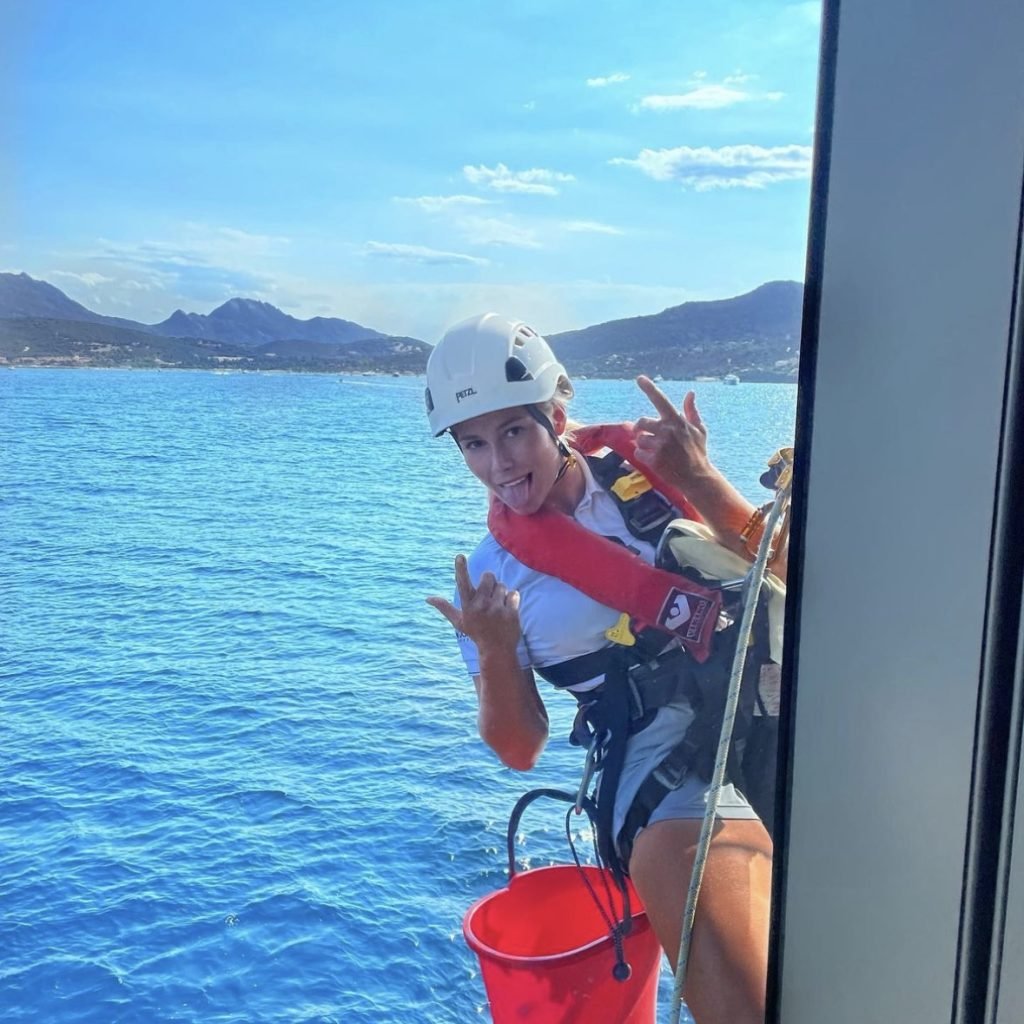What’s the difference between the Med and Caribbean seasons?
There are two primary yachting seasons in the industry. During the summer, yachts generally head to the Mediterranean. During the winter, yachts travel to the bright Caribbean and the United States. When looking for work as a greenie during either of these two seasons, you should be prepared and apply a few months in advance to enhance your chances of stepping on board. We’ve prepared this article to walk you through some essential steps in landing your dream yachting career.
The Mediterranean ‘Med’ season usually starts in late April and lasts until September. During this time, yachts will travel across the Mediterranean, with some attending events like the Grand Prix and the Monaco Yacht Show. With the ongoing charters and events, this is a busy time to work onboard.
The Caribbean season typically occurs in late November, which marks the end of the hurricane season. Many yachts will make the trek across the Atlantic after the Med season has finished.
Getting Prepared:
As we all know, the Mediterranean season is coming to a close as the European summer ends. Are you prepared for the Caribbean season, which spans November through to February? The season you start looking for work is entirely up to you; however, certain times of year may boost your chances of obtaining your dream role.
As you may know, several international events occur within the yachting industry. For example, the Cannes Yachting Festival and Monaco Yacht Show take place in September. Some of the best-known times to try and secure those dream yachting jobs are after these events. During these times, there will be lots of crew movement happening. Crew members often choose to resign during this period, as it is widely regarded as the most appropriate time to leave. Therefore it gives an excellent opportunity for the green crew to start applying and trying to get on board. Before the new season begins, the yacht can invest the time in green crew to get trained before the crossing. Here at CrewPass, we believe September is one of the best times as a greenie to apply and put yourself out there to land your dream job.
Some yachts have downtime between operations, which is when there is a high likelihood that they will seek out new green crew members. The decision to bring in a green crew member is based on the yacht’s assessment of its upcoming schedule and its capacity to invest time and effort into training someone new. However, not all yachts will have time to train green crew, this may be due to reasons such as a tight schedule. In this instant, yachts opt for more experienced crew members as they can quickly step into the role. Lots of these experienced crew members are often well-versed in the demands of the yachting industry, possess the necessary certifications, and can perform their duties effectively from the get-go. This is why strategic planning of entry into the industry as green crew is crucial. If you are considering breaking into the industry, consider the timings and the yacht’s operational context.
The Caribbean season is approaching are you prepared?
This is where CrewPass comes in. As some may already know, CrewPass puts you ahead of the competition. Background checks are quickly becoming an industry norm, so why not stay ahead of the game? Background checks are essential onboard because they ensure improved security, assuring agencies that they are presenting a thoroughly vetted and safe crew. This gives the Captain confidence that they have a trustworthy and safe crew.
CrewPass Approved Accreditation is granted after a crew member has signed up with CrewPass and passes their comprehensive background checks and ID verification. This CrewPass Accreditation is becoming more widely recognised within the industry, instantly setting you apart from the other crew entering the industry.
How can you prepare as a greenie, and what problems could you face?
One of the most significant problems most green crew members will confront is a lack of experience. You may have qualifications but need to gain real-world experience to function in such an industry. Don’t be discouraged, though, because plenty of chances are accessible for those willing to put in the effort.
Additionally, make sure you have the correct mentality to work onboard. You will work with various people, each with their own personality, which might sometimes be daunting. As a result, you must practise and grow your respect, patience, empathy, kindness, and understanding for your crew. An adaptive disposition would benefit you as someone new to entering the industry. Due to continually changing plans and timelines, being more adaptable and agile when problem-solving will also help you stand out.
Try to get down to the Med for the end of the season as a green crew. Why? As previously stated, if you haven’t had the best luck finding a job for the recent Med season, now is the time to put yourself out there. Many yachts will be docked for the big events; talk to the yachties who are currently on the yachts, and try to acquire contacts on a few vessels. This will give you better access to the industry and let you know when people depart or arrive. Finally, ensure you are registered with all crew agencies (see our partners page). These agencies will know what yachts are making the crossing to the Caribbean/Fort Lauderdale.
Visa’s:
B1/B2 visa! You may enter the US sea space whilst working in the Caribbean; therefore, you must ensure that you legally enter the country on the necessary visas. The B1/B2 visa is a multi-entry visa that is believed to be ideal for superyacht crew. We advise the crew not to attempt to apply for this type of visa on their own before they have the backing of a yacht. Once you have gained a job onboard, the yacht usually takes on the job of applying for you to get a visa.
If you cannot obtain this visa, don’t panic; there are many other destinations you can visit that DO NOT require a B1 visa—for example, the United Arab Emirates, the Maldives, the Seychelles, and the South Pacific. We would not recommend applying for this visa unless you are employed on a boat (we will write a blog about this soon). Once employed, it is much easier to apply for a visa when a boat does it for you, making it less risky.
Is the Caribbean season for me?
The Caribbean season includes:
- More time at anchor during the Caribbean season. The Caribbean is full of intriguing itinerary destinations. However, due to their size, certain yachts are prohibited from entering specific ports.
- Yachts are typically quieter throughout the Caribbean season, with the busiest times being Christmas and New Year. This means that time to see family and friends may be limited during these times.
- Due to the warmer waters, there will be more water sports and beach settings.
- Chefs may find provisioning slightly more difficult than in the Med.
Good luck job hunting from all of us at CrewPass.
P.S. Don’t forget to sign up for CrewPass if you haven’t already, or start sharing your Approved status!



